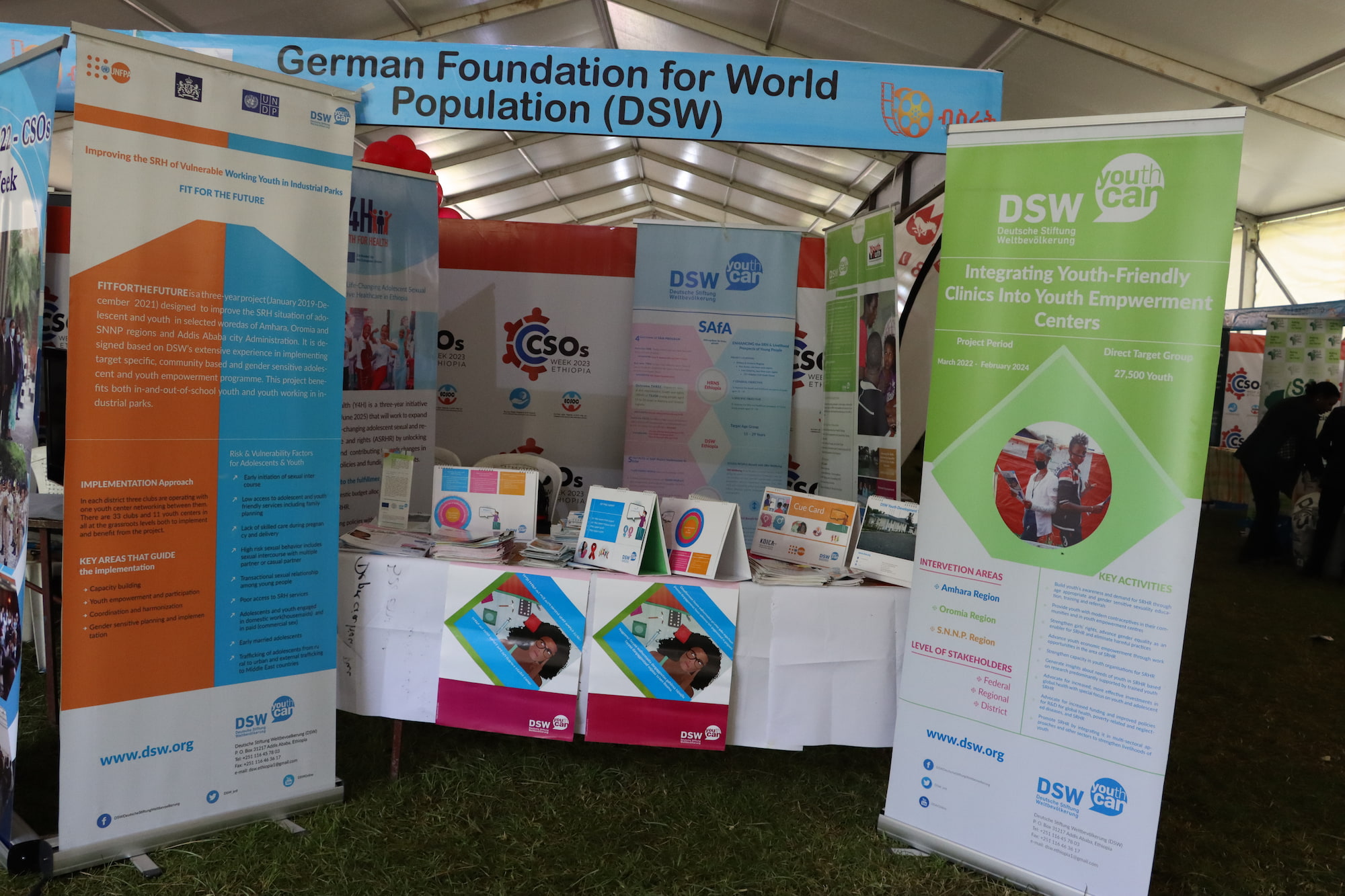

DSW Ethiopia Shares its Good Practices at an Annual CSO-Week
Civil Society Organizations (CSOs) in Ethiopia celebrated the annual “CSO-Week 2023” at Ghion Hotel in Addis Ababa from 7-9 June 2023. The event took place under the aegis of the Authority for Civil Society Organization (ACSO), a government entity overseeing all registered non-governmental organisations operating in Ethiopia. The three-day annual gathering entertained a host of activities, including exhibitions, bazaar, conference and panel discussions on topical development issues.
The event, which was organised by the Civil Society Organization Council (CSOC) on behalf of ACSO, saw more than seventy-five CSOs exhibiting their good practices and sharing experiences at the high-profile networking platform. This year’s CSO-Week was organised for the third time in a row and the bustling visitors, including government stakeholders and other public members, remained at the event all day.
The slogan of this year’s CSO-Week was “Proactive CSOs for Sustainable Peace, Human Rights and Good Governance”. At the opening day conference, Jimma Dilbo, Director General of ACSO, acknowledged the increase in the number of CSOs participating at the event this year compared to the previous two years. He noted that the well-spirited CSOs camped at Ghion Hotel under the large makeshift shed in which many booths were installed to demonstrate their synergised roles and practices in development partnerships. “Our objectives to gather here for the next three days merit the shared commitments toward proactive engagements in bringing sustainable peace, ensuring human rights and good governance in Ethiopia at all level”, Jimma said at the conference.
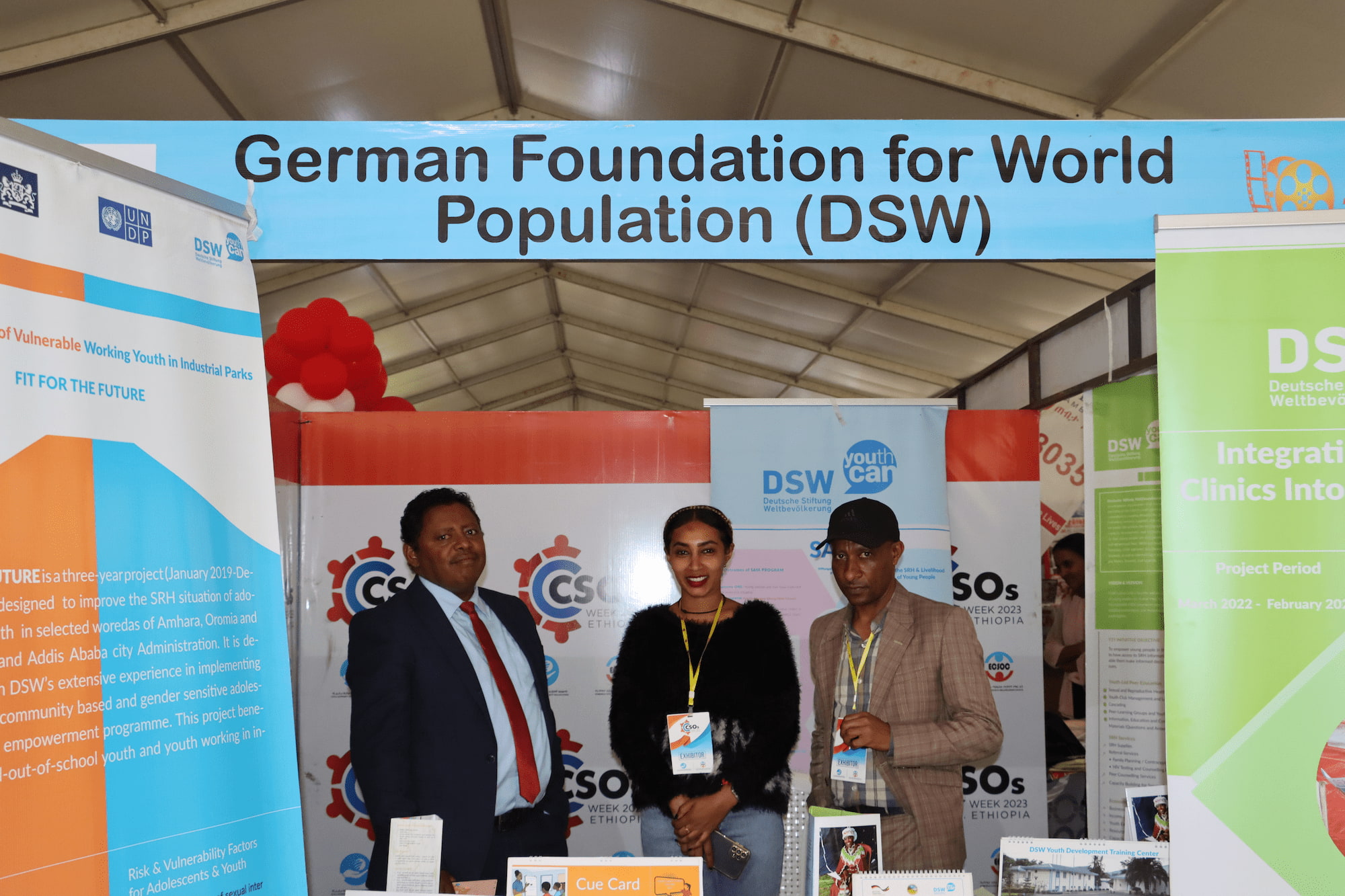
The conclusion of a half-day conference drew officials from the federal government accompanied by the ACSO’s Director General and representative from the CSOC, chief organiser of the event, to the exhibition areas where each CSO displayed varieties materials and products in a bazaar style. The interaction and networking efforts between visitors and exhibitors continued for most of the day.
The next two days saw a host of other activities engaging the government stakeholders, public members and representatives of the CSOs in panel discussions on sexual and reproductive health right issues and other related topics at separate venues. DSW Ethiopia was represented by its country director, Feyera Assefa, who participated at one of the panel discussions where the thematic focus was relevant to DSW’s works. Panelists comprised speakers from the David & Lucile Packard Foundation, Marie Stopes International (MSI) and Pathfinder.
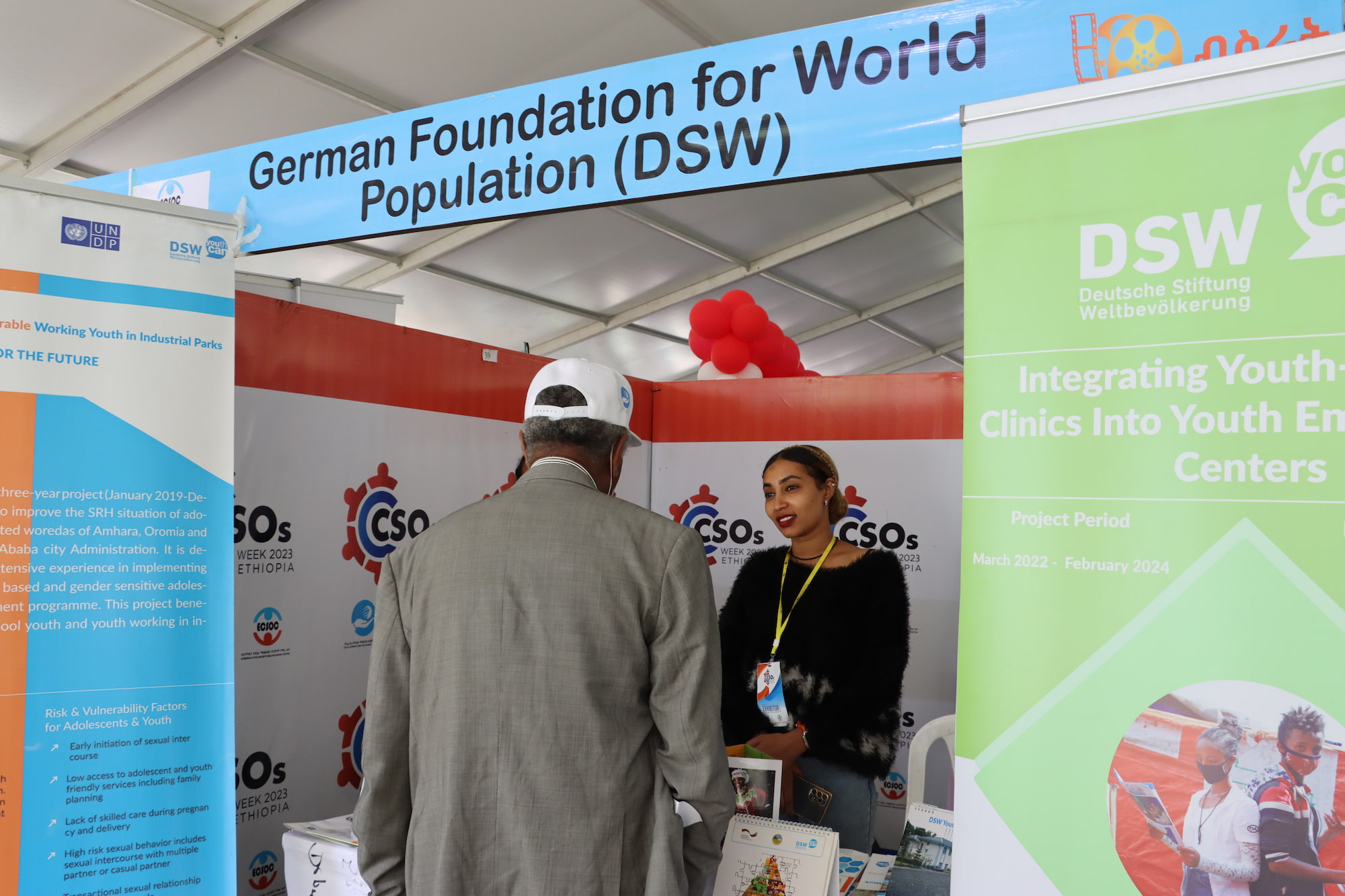
The panel discussions included “Investing in Reproductive Health (RH) Services within the Framework of Sustainable Development Goals (SDGs).” In light of the fact that utilisation of contraceptives among currently married women stood at 41 percent in 2019, up from 14 percent in 2005 (Mini-EDHS, 2019), the rate at which the achievement was attained tripled in the course of two and half decades. According to sources presented at Kigali Conference by the Ministry of Planning and Development (2022) citing the EDHS data, the contraceptive prevalence rate in Ethiopia is projected to exceed the 50 percent mark by 2024 – 2025, that is, five years shy from the SDGs ultimate achievements.
Although Ethiopia’s performance in the SDGs progress as far as SRH and family planning services are concerned appears very encouraging, the panelists noted that there are still tens of thousands young women whose family planning (FP) needs remain unmet, resulting in many of them being forced to drop out of school. This is why the crucial role of civil society organisations in gender mainstreaming at all levels is important to emphasis. Moreover, particular focus is needed on the growing industrial parks where across the country over 85,000 youth work with that majority of the workforce comprising young people aged 19 – 28.
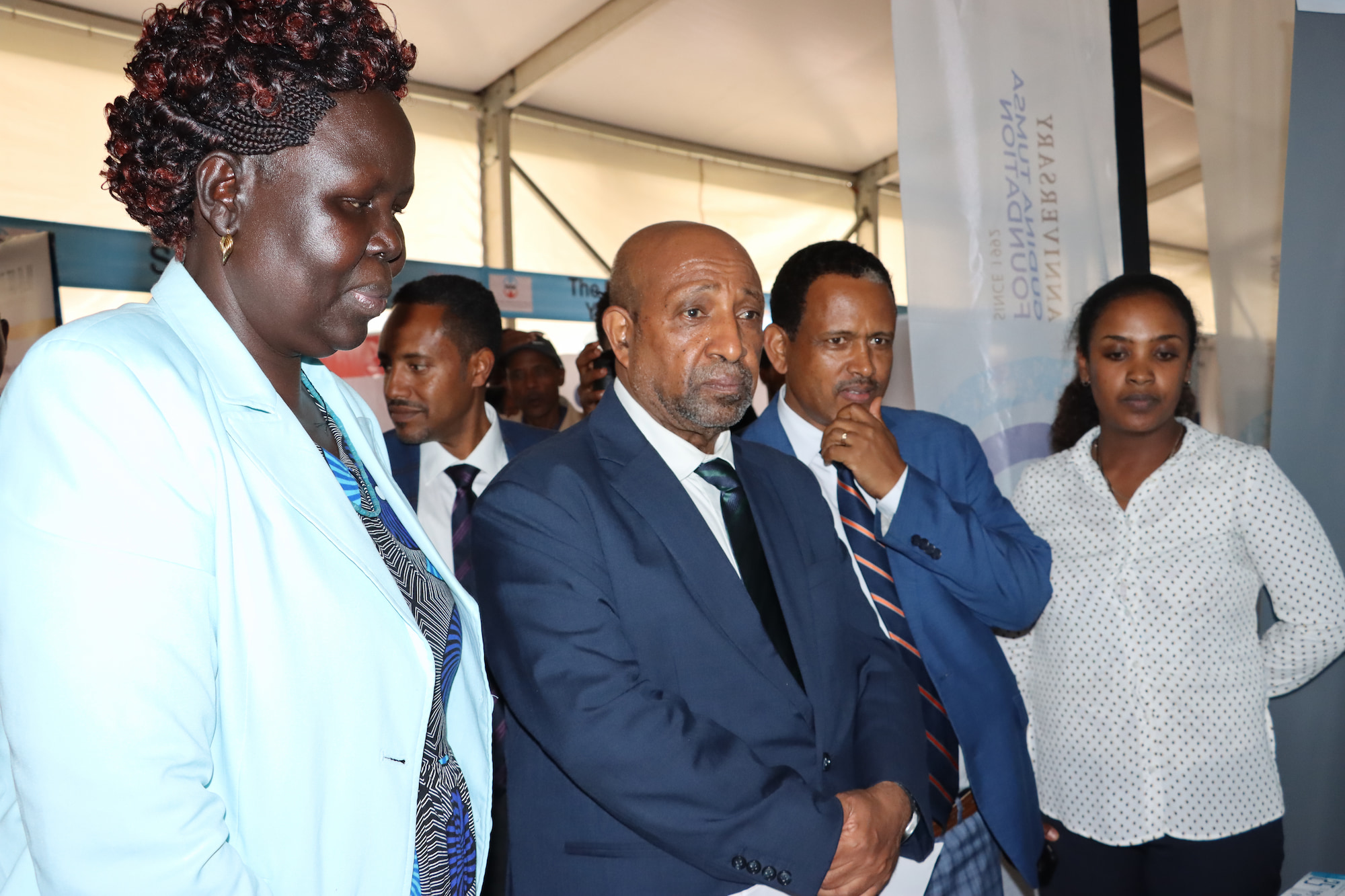
The response among the CSOs, including DSW whose workplace intervention targeting the youth working at various industrial parks in the efforts to address their SRH/FP needs make a lot of differences. This is mainly because more than 90 percent of the workers in this particular sector constitute young women.
Despite the challenges, Ethiopia is on the right course regarding the SDGs. Therefore, while evaluating how the country came along so far, the lessons can be drawn from not only what was attained as good practice but also from the shortfalls. The same way the sexual and reproductive health and rights (SRHR) contribute to the attainment of SDGs, as the SDGs complement to the progress of SRHR, according to the panelists. The rationale behind the need for strengthening synergies among CSOs and government stakeholders focusing on the SRHR in relation to the SDGs has more to do with the level of progressive achievement attained in spite of challenges faced as the SDGs go along.

Barely a year lapsed after the U.N in 2015 has set a fifteen-year development program under the platform of Sustainable Development Goals, when what was phrased by the development practitioners as the “Quadruple-Shock” befell Ethiopia, the panelists articulate. Since 2016, the first shock wave gripped the country with revolutionary mood as the protest movement exacerbated that led to the tumultuous political transition through 2018. The second and third shocks born out of the COVID-19 pandemic and the climate change impact contributed its fair share of the shock that stifled resources that were meant to go for SDGs. The fourth one came after the Russian-Ukraine conflict in February 2022 escalated to a full-scale war that forced the diversion of resources, which would have been leveraged through official development assistance (ODA).
These challenging circumstances have driven this year’s event differently from those of the past as the advocacy efforts for domestic resources to underpin the development programs were given particular emphasis.
The third annual CSO-Week event at which DSW has always participated helps CSOs exhibit their good practices among government stakeholders and other development practitioners not only to further strengthen their network for partnerships but also to advocate for leveraging resources from local sources.
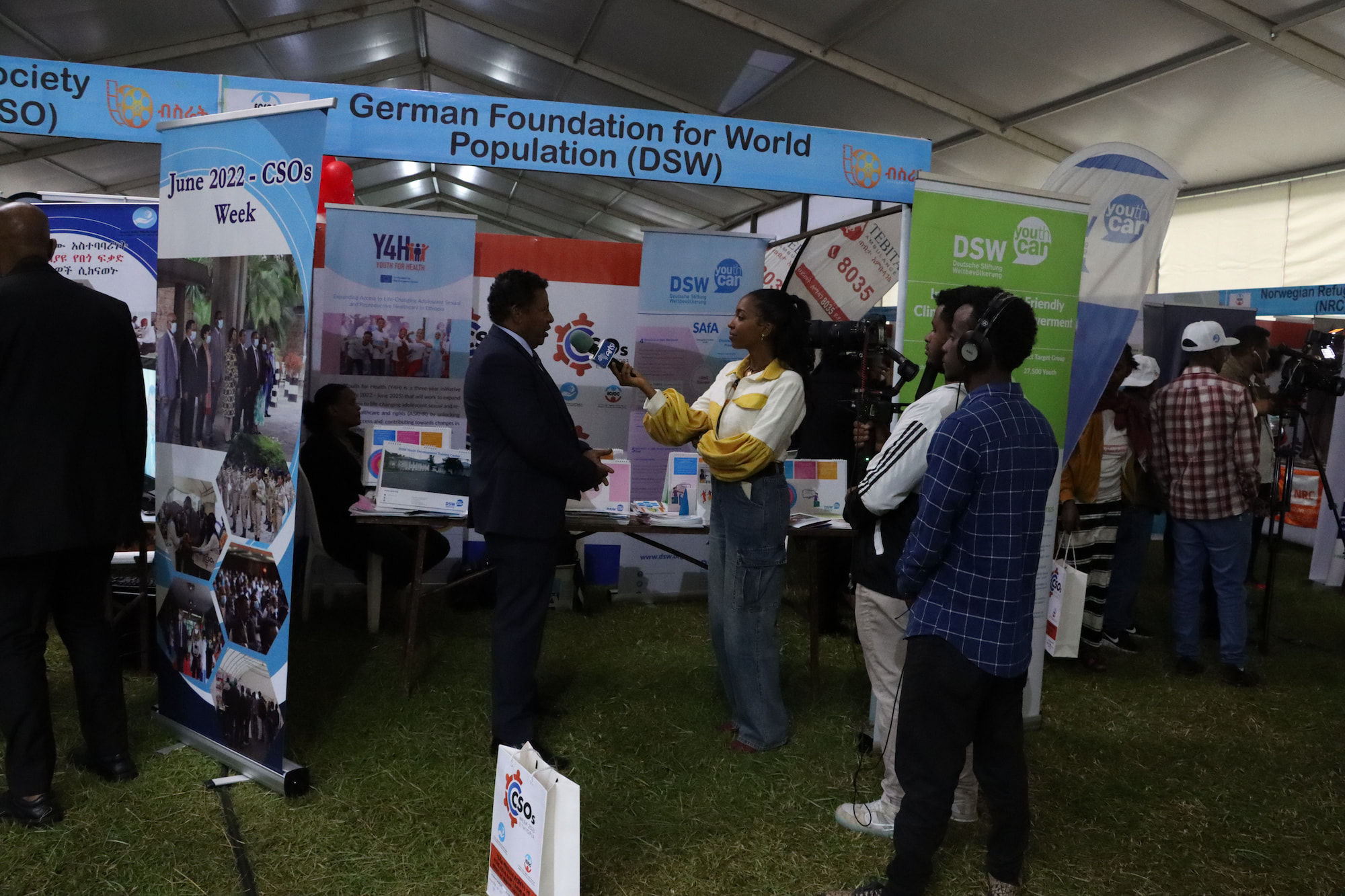
Photos: private
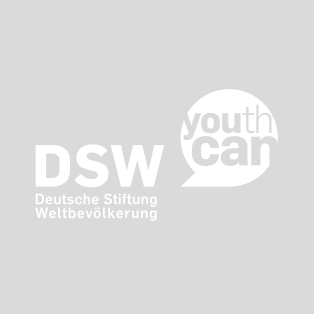
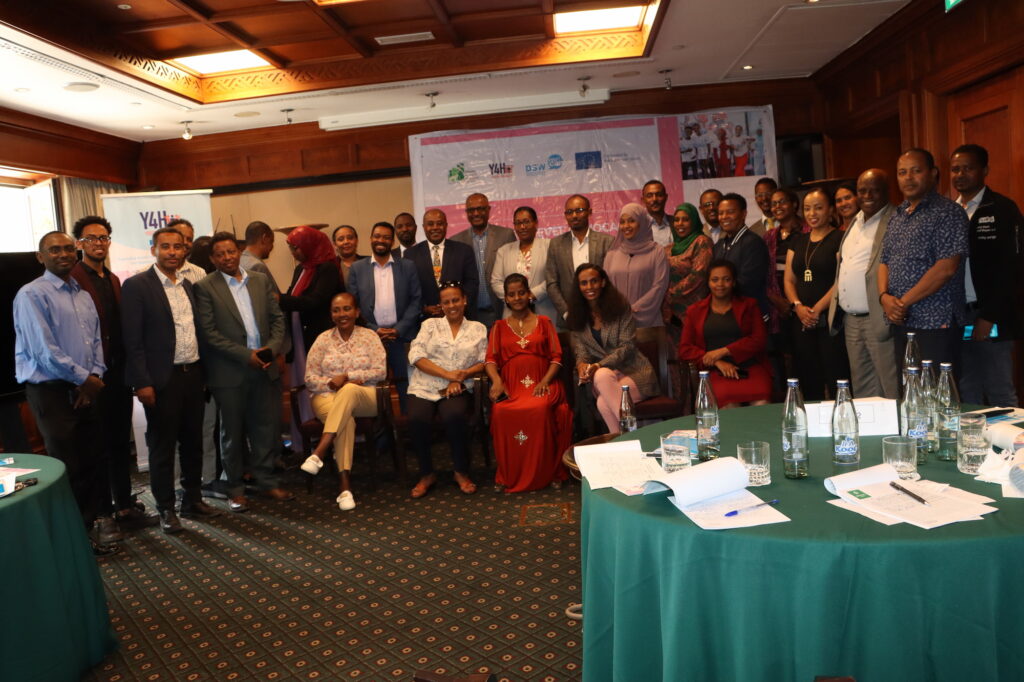
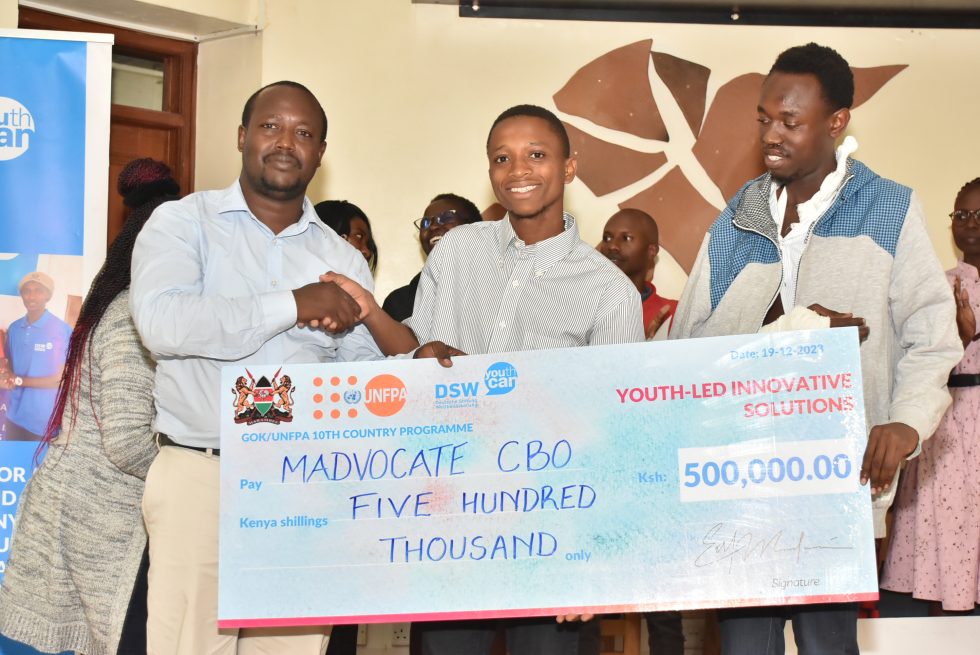
Comments